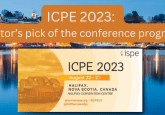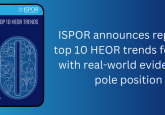Global representatives push for international collaboration to bring real-world data into regulatory decision-making

Published recently by the International Coalition of Medicines Regulatory Authorities (ICMRA), the European Medicines Agency (EMA, Amsterdam, Netherlands) has released a statement calling for international collaboration to enable the generation and utilization of real-world evidence for regulatory decision-making.
The utilization of real-world data and evidence is becoming more and more prominent in the development, authorization and monitoring of medicines to support regulatory decision-making.
Although real-world evidence is an important aspect of medical research, there are still challenges that need to be overcome, such as heterogeneous data sources across the world, differing levels in the quality of the data and various processes for data-sharing.
The COVID-19 pandemic highlighted the need for international agencies to share data and collaborate, especially in relation to real-world evidence. They have now agreed to prolong this collaboration beyond the pandemic.
Members of the ICMRA had promised to further enable the integration of real-world evidence into regulatory decision-making. They have identified four key areas: harmonization of terminologies for real-world data and real-world evidence; regulatory convergence on real-world data and real-world evidence guidance and best practice; readiness to address public health challenges and emerging health threats; and transparency.
The goal is to steer research into these areas specifically, which can then be presented through existing agencies such as the International Conference on Harmonization, international standardization bodies and clusters of interested regulators.
The joint statement, given in Amsterdam in June 2022, was established due to an ICMRA workshop on real-world evidence developed by EMA, the FDA (MD, USA) and Health Canada (Ontario, Canada).
It included representatives from over 40 countries, as well as representatives from the World Health Organization (Geneva, Switzerland). Each shared their accomplishments and challenges in generating real-world evidence to support the assessment of medical treatment.
Future steps will include what actions can be taken to implement the previously mentioned four areas of collaboration by multiple international agencies.
Sources: https://icmra.info/drupal/sites/default/files/2022-07/icmra_statement_on_rwe.pdf
Want regular updates on the latest real-world evidence news straight to your inbox? Become a member on The Evidence Base® today>>>






